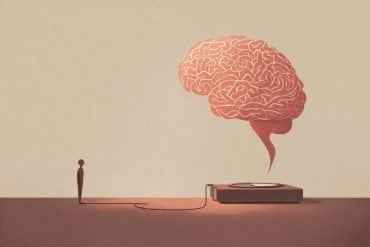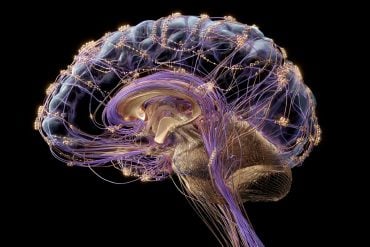Summary: New research reveals that a single night of sleep can enhance memory for the order of real-world experiences—lasting for over a year. In a unique study, participants took an immersive art tour and were later tested on their memory of both object features and event sequences.
While memory for visual details faded, memory for the sequence of events significantly improved after sleep. Brain recordings confirmed that deep sleep brainwaves—slow waves and spindles—were linked to this long-lasting memory boost.
Key Facts:
- Sequence-Specific Benefit: Sleep enhanced memory for event order, not visual features.
- Long-Term Effect: A single night’s sleep improved sequential memory for up to 15 months.
- Deep Sleep Link: Brainwaves during deep sleep were tied to stronger memory retention.
Source: Baycrest
While sleep’s positive impact on cognition has long been recognized, Baycrest researchers have revealed that a good night’s sleep may actively enhance memory rather than simply protect it from decline.
The new findings are the first to reveal that sleep helps us better remember the order of events in our lives, even after more than a year.
“While our memory for features such as object size and colour declines over time, sleep can improve our memory for event sequence,” says Dr. Brian Levine, Senior Scientist at the Rotman Research Institute, part of the Baycrest Academy for Research and Education (BARE) and senior author on this study, titled “Sleep selectively and durably enhances memory for the sequence of real-world experiences” and published recently in Nature Human Behaviour.
“This study deepens our understanding of how critical sleep is for integrating experiences into memory.”
Most studies on human memory for events require participants to memorize items, such as words or pictures, in a laboratory setting.
However, in this study, Dr. Levine—along with then-graduate students Dr. Nicholas B. Diamond and Dr. Stephanie Simpson—designed a unique and immersive real-world experience in a 20-minute audio-guided tour of artworks displayed at Baycrest, a global leader in aging and brain health in Toronto, Ontario.
Participants took the tour and were tested on their memory at five delay intervals ranging from one hour to 15 months after the tour.
The tests included questions on the physical features of the artwork and the sequential order of tour items. The researchers found that sleep boosted memory for sequences, whereas memory for features declined.
To confirm their findings, they ran a second study where participants were randomized to either a wake group or a sleep group.
The sleep group did the tour and first memory test in the evening and the second memory test after a night of sleep in a sleep laboratory with brain activity monitored with electroencephalography (EEG).
The wake group did the tour and first memory test in the morning and the second memory test in the evening after normal daily activities.
To test the long-term effects of sleep on memory, both groups completed additional memory tests one week, one month and 15 months following the tour.
Main study findings:
- Sleep improved memory for the order of the tour items (sequences), but not memory for features.
- The advantage of sleep versus wake for sequential memory was evident after a single night of sleep, and this advantage held at all test points, including 15 months later.
- No such improvement was found for memory for features of the tour items, such as shape and colour, which continued to decline over time.
- Brain activity recordings in the sleep laboratory showed that specific brain waves during deep sleep – namely slow waves and spindles – were linked to overall memory enhancement.
Good sleep is an essential part of a healthy lifestyle, including for the brain and cognition. This study shows how deep sleep benefits memory for the sequential structure of everyday events, even when the specific details of those events fade with time, and points to a potential cause of memory changes in older adults living with dementia.
“The benefits of sleep on memory are powerful; just one night makes a difference that persists over a year,” said Dr. Levine.
Funding: This study was funded by the Canadian Institutes of Health Research.
About this sleep and memory research news
Author: Natasha Nacevski-Laird
Source: Baycrest
Contact: Natasha Nacevski-Laird – Baycrest
Image: The image is credited to Neuroscience News
Original Research: Closed access.
“Sleep selectively and durably enhances memory for the sequence of real-world experiences” by Brian Levine et al. Nature Human Behavior
Abstract
Sleep selectively and durably enhances memory for the sequence of real-world experiences
Sleep is thought to play a critical role in the retention of memory for past experiences (episodic memory), reducing the rate of forgetting compared with wakefulness.
Yet it remains unclear whether and how sleep actively transforms the way we remember multidimensional real-world experiences, and how such memory transformation unfolds over the days, months and years that follow.
In an exception to the law of forgetting, we show that sleep actively and selectively improves the accuracy of memory for a one-time, real-world experience (an art tour)—specifically boosting memory for the order of tour items (sequential associations) versus perceptual details from the tour (featural associations).
This above-baseline boost in sequence memory was not evident after a matched period of wakefulness. Moreover, the preferential retention of sequence relative to featural memory observed after a night’s sleep grew over time up to 1 year post-encoding.
Finally, overnight polysomnography showed that sleep-related memory enhancement was associated with the duration and neurophysiological hallmarks of slow-wave sleep previously linked to sequential neural replay, particularly spindle–slow wave coupling.
These results suggest that sleep serves a crucial and selective role in enhancing sequential organization in our memory for past events at the expense of perceptual details, linking sleep-related neural mechanisms to the days-to-years-long transformation of memory for complex real-life experiences.







